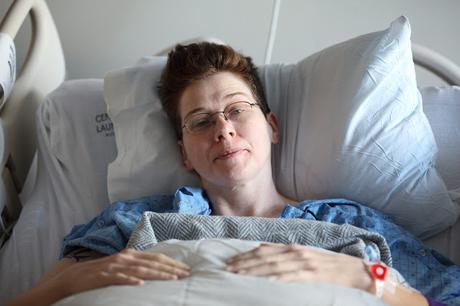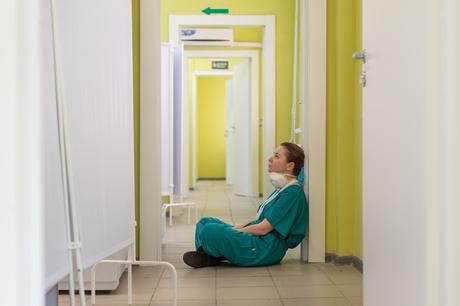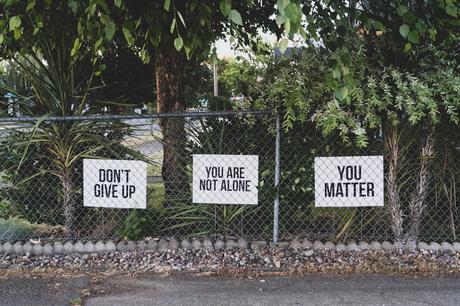
COVID-19 has a lot of us scared to go outside and carry on with our day-to-day lives. Especially as a disabled individual, or someone who may have to visit hospital more than most, it really has become a minefield.
Despite many situations where treatment was delayed due to coronavirus, those with pressing health needs may have had to continue visiting the hospital for treatment, medication, and rehabilitation. For some, no place is scarier than the hospital, and the extra coronavirus fear may have had adverse effects on your mental health.
Today, we’re talking all things mental health. First, we’ll address why people are heading to the hospital for treatment during COVID-19, and the ways these visits can affect the patient’s mental health. Then, most importantly, we’ll give you some ways to preserve your mental health during this time.
Reasons People are Going to the Hospital During COVID-19
Many illnesses, disabilities, and medical conditions don’t go away just because of COVID-19. As an impaired person or someone with a chronic illness, in particular, there are many reasons you might be heading to the hospital on a regular basis. Although a lot of your appointments may be held over the phone, by video, or delayed inevitably, some people are still heading in for:
· General check-ups to see how everything is going
· Rehabilitation and physiotherapy
· Surgeries
· Care after an accident involving your disability
· Care for those who aren’t disabled, but may have had an accident which causes an impairment
· Getting advice
· Discussing medication, and perhaps effects of and changes to this medication
Some hospitals are now starting to ease their restrictions on who can be treated. However, with infection control measures in place, they won’t be able to see as many patients as usual, perhaps for a long time.

Why Are People Worried About Being in Hospital During COVID-19?
It’s not just the hospitals that are admitting less patients than usual, for non-coronavirus issues. Ultimately, many immune-compromised individuals, particularly those with physical impairments, may delay going to hospital themselves. This could be due to a number of worries, including:
Concerns About Catching the Virus
The most obvious worry is that you’ll catch COVID-19. Especially considering complications that may arise from a number of disabilities on catching the virus, it can be a little frightening.
Thankfully, hospitals have been dealing with coronavirus for a while now. Now, they have countless procedures in place to prevent patients without COVID-19 from catching it whilst they’re being treated. For example:
· Hospital staff have rigorous hand hygiene procedures to ensure they don’t pass the virus from an infected patient to a non-infected patient.
· In clinical areas, common waiting areas or during transportation, symptomatic patients have to wear facemasks.
· The hospitals also make sure to keep coronavirus-positive patients in single rooms.
· They also have COVID-19 segregated areas to keep them from the rest of the hospital population.
Doctors Don’t Have Time for You
Another concern you might have is that doctors will be too busy dealing with COVID-19 patients to give you the attention you need. Unfortunately, this is a genuine concern; 16,000 doctors told a British Medical Association (BMA) survey that prioritisation of COVID-19 patients was worsening the care available to those without the condition.
The only solace you can take from this is that hospitals have always been overcrowded and understaffed. With less people going to hospital in general, the doctors will probably have as much time for you than they did before.
Can’t Bring Family and Friends with You
Patients who previously received face-to-face appointments were asked not to bring a relative or a friend with them unless it’s absolutely necessary. However, from 5th June, the rules have changed slightly, and individual hospitals are now allowed to make their own guidelines on visitors.
Have Problems with Your Mental Health Already
Many people with learning disabilities already have mental health issues, such as depression, anxiety disorders, and autism. To add to this, more and more people without learning difficulties also experience mental health issues, as the years go on.
For these individuals, taking a trip to the hospital during COVID-19 with these challenges will be more daunting than for most. This fact alone could be a considerable worry for you if you have one.

Tips for Dealing with Mental Health in Hospital During COVID-19
Now that we’ve covered some of the worries of visiting a hospital during COVID-19, it’s time to give you some tips on how to deal with any mental health issues it could cause.
1. Prepare for Your Visit
One of the best ways to keep potential mental health problems at bay is to make sure you have everything in order before you attend your hospital appointment. Before you go into hospital make sure you prepare the following:
· Your home: ask someone to keep an eye on your home and feed your pets. If you don’t have anyone to do this, you could ask a local authority to do it for you.
· Your children: if you have children, you could arrange for them to stay with a family member or friend. Again, if this isn’t possible speak to your local authority.
· Your welfare benefits: if you receive benefits, make sure you tell the DWP that you’re in hospital. If you’re in the hospital for more than 28 days they could reduce your benefits and if you don’t tell them, you’ll have to pay back any money they overpay you.
· Taking things in: make sure you take extra clothes, night clothes, toiletries, books, a notepad and pen, and your mobile phone.
2. Get Lots of Sleep
I know this can be difficult whilst you’re in hospital, but getting a decent night’s sleep is one of the best ways to curb mental health symptoms. Eight hours of sleep a night will help you recover from your treatment, and also prepare you for another day in the hospital.
Adversely, a lack of sleep can cause a negative mood, low energy, and a general inability to function normally. If you’re having trouble, try counting sheep, breathing techniques, or look online for tips on bringing down the energy levels of the body.
3. Read a Book
Getting stuck into a good novel can help take you away from your current environment. Try to read something that doesn’t take a lot of effort and stay away from books with morbid subject matter. Reading a story where people are out and about, in the street, or on holiday without a deadly COVID-19 virus looming over them will help you forget about it.
4. Work on a Hobby
Sometimes, reading a book isn’t enough to keep your attention off your situation, or maybe you’re just not a reading kind of person. If you have any hobbies like knitting, solving puzzles, or anything that requires you to actually do something then do it. Having something physical to work on is a proven remedy for many mental health problems, so make sure to bring something with you when you check into the hospital.
5. Meditate
Meditation has evolved beyond something Buddhist monks do to become enlightened, and has actually become a medically recognised calming technique. Just sitting, focusing on your breathing, and learning not to pay attention to the bad thoughts is a powerful tool to have in your arsenal. You won’t become enlightened on the first try but, even in the early stages, the breathing alone has powerful mental health strengthening capabilities.

6. Exercise
It might seem impossible right now, especially if you have a debilitating medical condition or long-term disability to deal with, but exercise is a proven technique for preserving mental health. Speak to your doctor and find out when sort of exercise you’re able to perform before or after your treatment and do it.
This could be walking, stretching, yoga, anything that gets your heart rate up. Exercise actually reduces the body’s stress hormones, encouraging the production of endorphins which are chemicals the brain uses to numb pain and lift your mood.
7. Laugh
Laughter not only boosts mood, but also helps with reducing arterial inflammation, and increases the production of HDL (the “good” cholesterol). So, engaging in activities or with people that make you chuckle is the best medicine for mental health. Although severe mental health issues, such as depression, can make this difficult, perhaps you could try watching one of your favorite comedians perform a set online to help.
8. Stay off Your Phone
Don’t take this as a blanket statement, as you obviously need your phone to stay in contact with your friends and family whilst you’re in hospital. But there is a lot of research taking place at the moment into how things like social media, and checking your phone for likes and attention, can actually stress you out. You also don’t want to be staring at the news on there all day, with COVID-19 dominating almost every headline and reminding you that you’re in a place with people that have it.
9. Talk to Someone
Sometimes, it’s a good idea to voice your worries and offload them on someone else. This could be a nurse, or even another patient, as they might be having the exact same worries as you; it’s nice to know you’re not alone. Too often COVID-19 can make us fearful of each other, so it’s good to get some human contact where and when we can get it.
10. Call Someone for Help
If the doctors are too busy to speak to you, and they aren’t able to assign a member of the hospital’s mental health team to you, don’t be afraid to call for outside help. If you’re really struggling with your mental health you can speak to a charity, like the Samaritans, by calling their mental health helpline.
The COVID-19 Conundrum
There’s a fine balance between getting on with our lives as normal, and trying to protect ourselves as much as possible. If you’re holding off on going to hospital due to COVID-19, that’s completely understandable but, if you have a possible life-threatening condition, you should consider treatment.
When you get to the hospital, you’re likely going to worry, but hopefully the tips we’ve shared in this article will help with any mental health issues caused by it. This list isn’t exhaustive, and I’d recommend finding more tips elsewhere if none of these have personally worked for you.
Thank you for reading, leave a comment below and share your thoughts with us.
